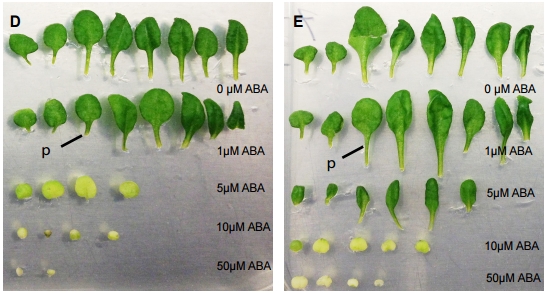Dry spells: Drought-resistant plants
Interview with
 Plants do not respond well to a lack of water. They wilt, yellow, and they drop their leaves which is not good if they're a crop plant. Particularly, since rising human populations mean more marginal land is being pressed into agricultural service and we have the threat of climate change to consider too. So can plant scientist Kathy Barton come to the rescue? Chris Smith found out...
Plants do not respond well to a lack of water. They wilt, yellow, and they drop their leaves which is not good if they're a crop plant. Particularly, since rising human populations mean more marginal land is being pressed into agricultural service and we have the threat of climate change to consider too. So can plant scientist Kathy Barton come to the rescue? Chris Smith found out...
Kathy - I'm lucky enough to work at a place where we do science because we're interested in the answers whether or not they turn out to be important or useful. I'm also luck enough that this latest work that we've done wasn't just interesting but it actually turns out possibly to have some useful implications for generating drought tolerant plants. Personally, I'm interested in how plants grow and what controls that. They grow in response to their environment. If they're in a rich environment, they'll grow better than if they're in a poor environment. How do those environmental cues get passed along to the genetics of the plant to make it grow rapidly or slowly? Fairly simple questions but things we don't know very much about.
Chris - Do we know the mechanisms by which plants gauge their growth and development to meet the demands of the environment?
Kathy - So a lot has been done on both of those problems. A lot has been done on that inherent developmental blueprint. A lot has been done on environmental sensing. But joining the two together has just now, by a variety of labs, begun to happen so that we actually understand how the two programmes, intrinsic and extrinsic are linked.
Chris - What have you found?
Kathy - We kind of actually stumbled upon because we were interested in that intrinsic programme. So a mutant that is insensitive to the hormone called abscisic acid that when added to the plant inhibits growth. It's believed that drought increases this hormone and then thereby, growth is inhibited. Our mutant is resistant to that process and it grows better when water is withheld than a normal, non-mutant plant. We think this is because the plant actually, it has enough water but it's sensing that there's less. And so, it's starting to slow its growth, recycle nutrients out of the leaves, perhaps in anticipation that it's going to be in hard times.
Chris - So your mutant for want of a better phrase, sail a bit closer to the biochemical wind than your average plant.
Kathy - Right. So maybe that threshold is a little bit tighter than it needs to be.
Chris - Have you unpicked exactly what's happened in those mutants to make them have this unusual ability?
Kathy - Well, we know that the defect in these is a defect in the transcription factor. Transcription factors control the repertoire of proteins and RNAs that are present in a plant. So, we have looked at what genes this transcription factor controls and many of those are involved in stress responses. That makes sense because we now have the environment through abscisic acid controlling this transcription factor which then turns on stress response genes. And maybe here, it would be worthwhile saying that in plants, when we talk about stress, even though Bill Clinton made fun of people working on plant stresses that we were working on plant psychology, actually, stress in plants is meant to be cold stress or drought stress, or salt stress, or heat stress. So we're talking about physical stresses. Not about psychological stresses to the plants.
Chris - Why has evolution allowed plants to be so conservative in this way? Why make it so that they are so cautious?
Kathy - Well, Arabidopsis is a weed. It would rather live to see another day if it can recycle nutrients out of its leaves and put them into seed, perhaps that's selective. For now, I don't know the answer to your question, but that would be perhaps one way to think about it. Whether our domestic crop plants are going to be where they live on this edge, and whether we've already domesticated them to the point where they don't pack it in quite as early, we don't know. We know that all plants have these transcription factors. We know that maize has them and we're trying to find out if the maize proteins do the same thing as the Arabidopsis proteins.
Chris - Do you have any idea as to how the mutation affects the ability of the plant to respond to stress? I know you've unpicked the pathway as to what appears to happen but do you actually know the intricate nuts and bolts now so that we can begin to say, "Well, we could tweak other plants in the same way and render them a bit more drought tolerant"
Kathy - We know that the mutation is a simple loss of function. That means that the mutation is simply a reduction in the amount of this protein. So that would make it pretty trivial to generate a similar mutation in maize for instance.
- Previous Smokefree this Stoptober?
- Next Net gains: modelling malaria










Comments
Add a comment